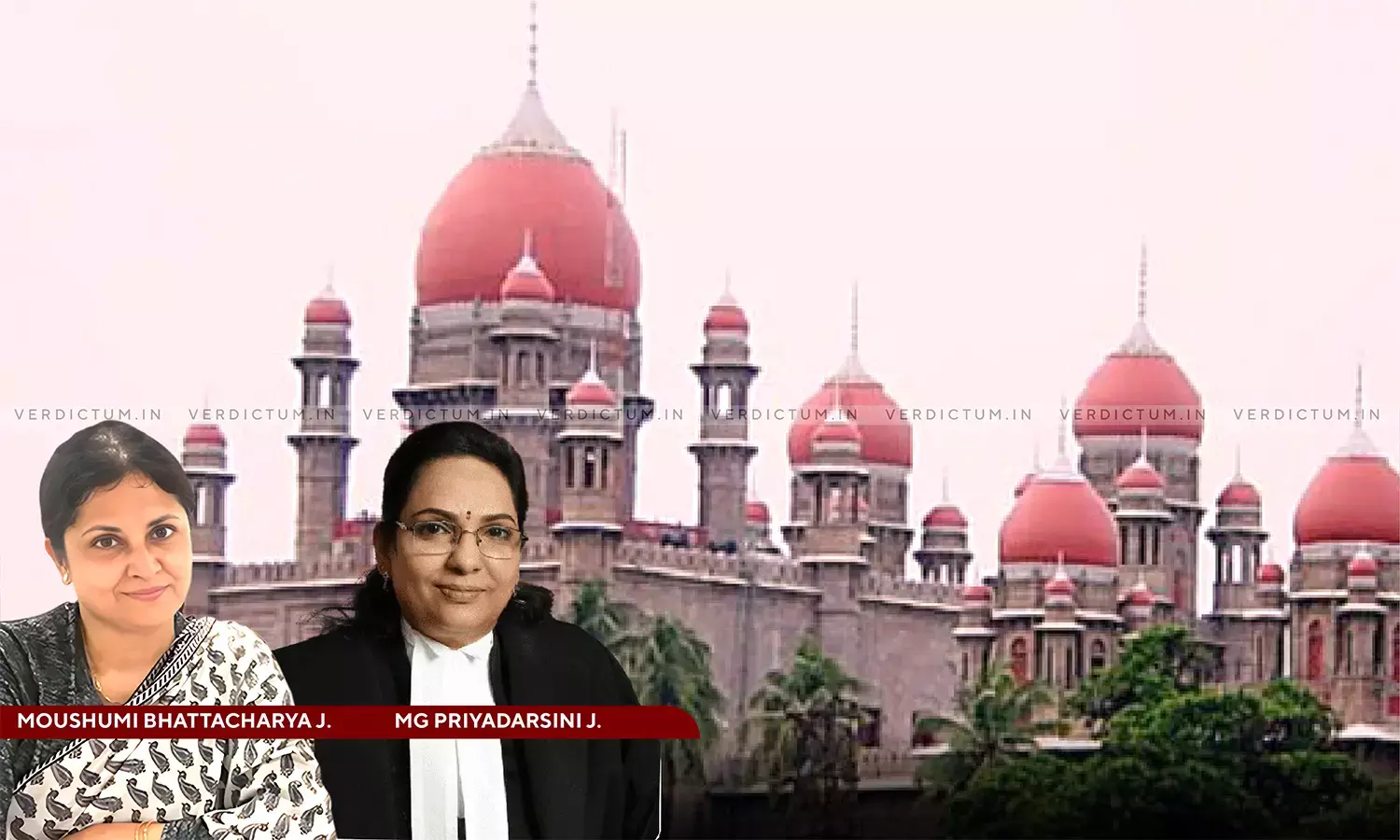Incapacity Of A Non-Party May Be Equated To Legal Disability U/S 6 & 7 Limitation Act: Telangana High Court
The Telangana High Court while condoning delay of 428 days in filing Appeal Suit observed that incapacity of a non-party may be equated to legal disability under Section 6 and 7 of the Limitation Act, 1963.
The Court said that a non-party’s prayer for condonation of delay should be assessed on a wholly different template as while a party to a lis is expected to be diligent in approaching the Appellate forum, a non-party cannot be put through the same regimen of limitation as well as of expected conduct.
The applicants/appellants approached the Court praying condonation of 428 days delay in filing the present Appeal Suit against the impugned judgment and decree passed by the Additional District and Sessions Judge.
The bench of Justice Moushumi Bhattacharya and Justice M.G. Priyadarshini observed, “The incapacity of a non-party may be equated to the legal disability under sections 6 and 7 of the Limitation Act since the absence of lack of knowledge is an impairment of the non-party’s right to seek legal redress within the prescribed timelines. It may even be said that a non-party’s prayer for condonation of delay should be assessed on a wholly different template. While a party to a lis is expected to be diligent in approaching the Appellate forum, a non-party cannot be put through the same regimen of limitation as well as of expected conduct.”
Advocate Chintalapudi Lakshmi Kumari appeared for the Appellant and Advocate B. Mohan appeared for the Respondent.
Relevant facts in the present case are that respondent No.1 (alleged buyer of the suit schedule property) filed a Suit for specific performance against the respondent Nos.2-11 (sellers) in respect of an alleged Agreement of Sale. The Suit was decreed without contest. The Execution Petition filed by plaintiff/respondent No. 1 is pending. The 3rd party Appellants came to know of the decree in the Suit and filed the present Appeal seeking leave to Appeal together with a prayer for condonation of delay. The appellants were granted leave to Appeal.
The Court observed, “The object of a litigant being held to a prescribed period of time for approaching a Court is recognized as a matter of public policy. The concept of public policy emanates from discouraging laches and acquiescence on the part of litigants who seek to take the Court processes for granted. The prescribed timeframes under particular Statutes and in the Schedule to The Limitation Act, 1963 is for the salutary objective of inculcating discipline in non-vigilant litigants. It is also for the purpose of ensuring that a cause of action has a shelf-life in the sense of being kept alive and relevant for filing a Suit or proceeding in a Court of law. Public policy however also demands that the prescribed timelines be relaxed in appropriate exigencies. The Limitation Act makes room for such exigencies in the form of legal disabilities where a party is physically or mentally unable to approach a Court – sections 6 and 7 of the Limitation Act.”
The Court said that the question of limitation is not an inflexible standard or one that cannot be stretched where the Court deems it appropriate to do so. “…the discretion is to be exercised judiciously in order to advance a justice-oriented approach. The question of limitation is also a mixed bag of the law seen against the relevant facts.”, the Court added.
The Court said that the only determining factor for condonation of delay in third-party Appeals would be to see whether the non-party satisfies the requirement of sufficient cause.
Accordingly, the Court allowed the Interim Application.
Cause Title: B.R. Subhash Babu v. Y. Jaihind Reddy












